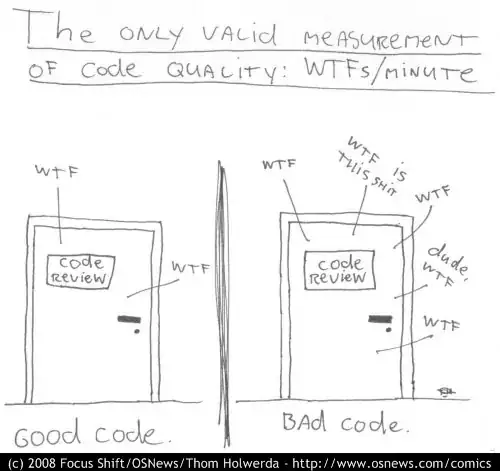A while loop can be written as follows in C# (and many other languages):
int someValue;
int someTerminatingValue;
while ((someValue = GetSomeValue()) != someTerminatingValue)
{
// Do something interesting
}
Is there a name for this pattern of assigning the value inside the while loop's expression?
NB I'm not asking if it is a good idea or a bad idea, just if there's a name for this pattern. Whether it's good or bad, people will see it so they need to know what it is. If there isn't a name for it then that's fine, I'm just asking if there is one.
 (
(